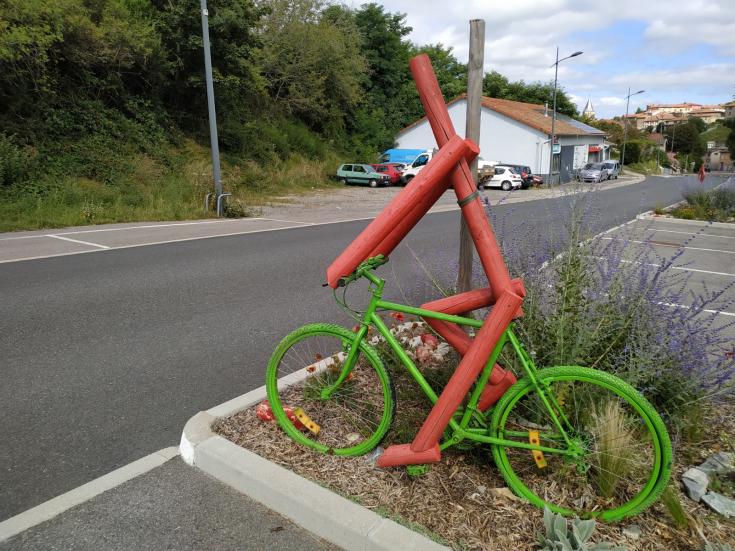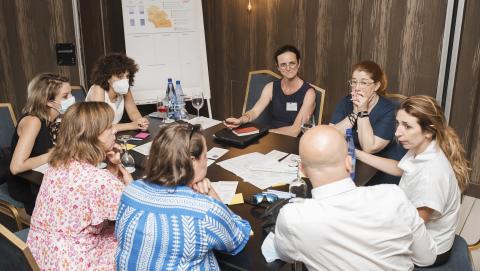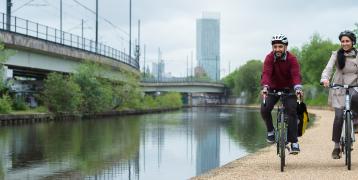Improving sustainable mobility in Kilkenny

The City of Kilkenny, in southeast Ireland, is a regional employment and cultural hub, and a popular tourist destination, expected to see a population growth of 30% in the next fifteen years.
To support the sustainable development of the city and region, Kilkenny County Council (KCC) is seeking to support sustainable mobility, particularly active and public transport, and reduce the impact of private cars.
KCC has taken the lead in Ireland as an ‘Active Transport Town’, since 2012, with investments into walking and cycling infrastructure, and has prioritised sustainable transport in its City and County Development Plan 2021-2027.
The Council applies a land use strategy of compact growth, supporting the 10 Minute Town concept, and is investing in rail and bus services, as well as new cycling and walking infrastructure.
In this context, the city is developing a Local Transport Plan to develop a comprehensive, sustainable transport network for the city, including new cycling infrastructure and the introduction of one-way measures in the city centre to reduce congestion and car use.
Peer recommendations for active transport
Wanting to learn from other regions on how to reallocate public space, introduce car-restrictive policies and encourage a shift to public transport, KCC applied to the Interreg Europe Policy Learning Platform for a Peer Review.
The Kilkenny Peer Review, held in November 2021, provided Kilkenny with a set of recommendations tackling two main issues – reallocating space for active and sustainable transport, and building public acceptance for the low-carbon transition.
For space reallocation and city centre traffic management, peers noted that business as usual would lead only to more congestion, pollution and noise and recommended bold political leadership, and integrated, holistic change comprised of multiple measures.
This could include pedestrianisation, one-way streets and reallocating parking spaces. However, these access limitations need to be combined with sustainable alternatives to encourage modal shifts.
The Peers also focused intensively on how to engage stakeholders and citizens to build public support for the transition. They recommended not focusing only on transport, but instead communicating about making the city centre flourish as a vibrant shared space, consulting with citizens and businesses on change, and being clear and consistent in communication and messaging.
Catching up with Kilkenny
A year and a half later, the recommendations are being implemented.
Our first decision after the peer review was to broaden the stakeholder group, to involve more people from the wider community.The group had mainly been composed of statutory organisations, and we sought to add companies, employers, disability representatives, and young people through school engagement.
The Peer Review boosted our confidence in implementing this and reassured us it was the right way to go.
As well as this stakeholder engagement process, a wider public consultation was also implemented and was promoted with a dedicated communications campaign, including adverts at bus stops and in local media, to reach people who would not usually be involved in such processes.
From the consultation, KCC has defined its mobility vision and objectives and is looking to the measures to implement.
The Council are designing the cycle network at present, making use of national funding, and has implemented a number of schemes to boost cycling. First, they have introduced a bike-sharing scheme using a private, commercial partner, and secondly, they run an intervention to upcycle bikes, bringing damaged and broken vehicles back into use.
“Kilkenny will develop a full parking strategy in the next months and will look into developing multimodal hubs and ride-sharing systems.
The Peer Review also flagged up innovative approaches which Kilkenny had not yet considered, such as measures to improve cargo delivery, and increased local ambition. “While commercial logistics is still a challenge for us, we are interested in developing new partnerships to improve this in the next years.”
“We’ve stayed in contact with several Peers, and having their expertise has been invaluable for our small public authority, considering our limited experience in SUMP development,” explained Corr.
“From the Peer Review, we’ve learned that improvement is needed in the mobility network as a whole, not only in the cycling network. We’ve been encouraged to reach out to other cities and work with other peers, and are making more of European opportunities, such as attending the Urban Mobility Days and looking for international projects.”
Explore the peer review report

Get policy advice
Submit your peer review application today and find solutions to your policy challenge with our experts and peers!


